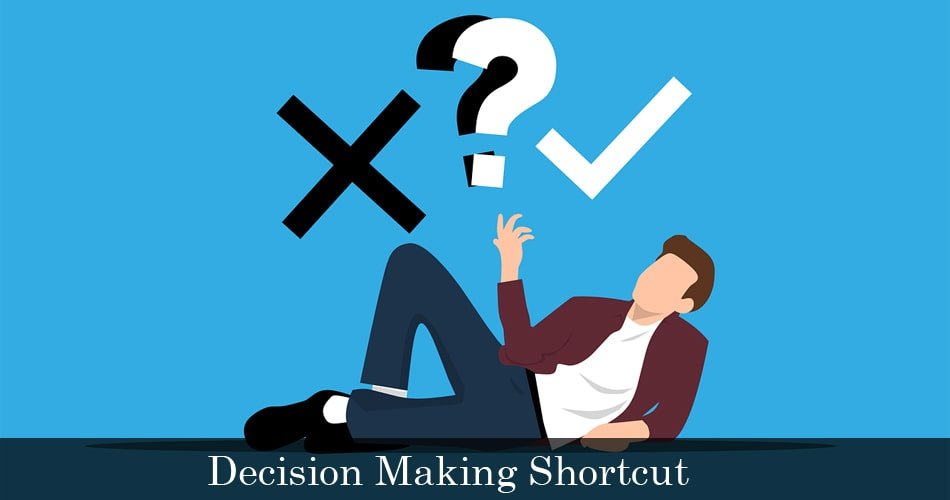Decision Making Shortcut

Life’s challenges can be daunting, but embracing decision-making shortcuts can revolutionize our approach. The “80/20 rule” is a prime example: 80% of our results stem from just 20% of our efforts. By concentrating on the few key factors that truly matter, we can eliminate distractions and make choices that lead to meaningful outcomes.
Whether it is developing a simple pros-and-cons list or trusting your gut instinct, these techniques empower us to act decisively. Exploring these shortcuts could make decision-making both easier and more enjoyable.
The Influence of Judgment Heuristics
Heuristics, or mental shortcuts, aid in problem-solving and making quick judgments. These rules-of-thumb reduce cognitive load, enabling instant decisions. However, they can sometimes lead us astray.
In the 1970s, Kahneman and Tversky studied how behavioral economists use heuristics to assess decision-making situations. Here are some key insights and their marketing implications:
Loss Aversion
People value gains and losses differently. Stock traders often sell winning stocks too soon and hold onto losing ones for too long. Consumers are more likely to accept offers that avoid losses, like “limited time” deals, over those that emphasize gains.
Anchoring
We prefer relative estimates over absolute ones. For instance, we might choose a $30 wine bottle over a $130 one but might reject the same bottle if it’s next to a $20 one. Anchoring is a common pricing strategy in consumer products.
Framing
The framing of a message can significantly impact its reception. For example, calling a tax an “estate tax” garners more support than labeling it a “death tax.” Similarly, consumers prefer “75% lean ground beef” over “25% fat ground beef,” despite them being identical.
Default Bias
Defaults are powerful influencers. For example, in organ donation, participation rates soar to 80% when individuals must opt out instead of opt in. Default settings are particularly effective in subscription services where the default is to renew.
Affect Heuristic
Emotional responses often substitute for complex assessments. Consumers use simple likings or dislikings to avoid intricate evaluations of risks and benefits. Positive or negative feelings replace detailed logical calculations.
Endowment Effect
We tend to value things we own more highly than things we don’t. When asked how much they’d pay for a coffee mug, people averaged $3. Those given the same mug as a gift valued it at $7. This effect is evident in sales strategies like bundling, where starting with fully-loaded options leads to purchasing more add-ons.
Our brains are cognitive misers, relying on a few heuristics to simplify complex decisions. Instead of engaging in exhaustive calculations, we often go with what feels right “in our gut.”
Conclusion
Understanding and leveraging decision-making shortcuts and heuristics can profoundly enhance our ability to navigate life’s complexities. By recognizing these patterns, we can make more rational, efficient, and satisfying choices. Embrace these insights, and transform the way you approach decisions daily.